Fondly called Babuji, Sudhir Phadke was a film producer, singer, and legendary music director of Marathi and Hindi films. Widely regarded as one of the icons of Marathi film and Sugam Sangeet, some of his famous songs include “Jyoti Kalash Chhalke,” “Meri Laaj Raakho Giridhari,” “Maiya Mori Main Nahin Maakhan Khayo,” “Phite Andharache Jaale,” “Kanada Raja Pandharicha,” “Sakhi Mand Jhalya Taarka,” and many more.
Early Life and Career
Sudhir Phadke, born Ramachandra Vinayak Phadke on July 25, 1919, in Kolhapur, Maharashtra, was a towering figure in the world of Marathi music and cinema. Phadke’s journey into music began under the tutelage of Pandit Vamanrao Padhye, where he honed his skills in classical vocal music. He also trained in Baburao Gokhale’s Maharashtra Sangeet Vidyalaya for a short while. In 1929, after his mother’s death, he moved to Bombay, where he further trained under Doctor Bhajekar and at the Maharashtra Sangeet Vidyalaya.
His talent soon led him to the recording studios of HMV in 1941, marking the beginning of a storied career. It was the time when he met legendary poet G.D. Madgulkar, with whom he worked extensively in the future.
In 1943 he joined Gramophone Company, where he came in contact with music maestro Snehal Bhatkar. Phadke and Bhatkar jointly gave music in the later Pradeep Pictures’s “Rukmini Swayamvar(1946).”
Sudhir Phadke In Films
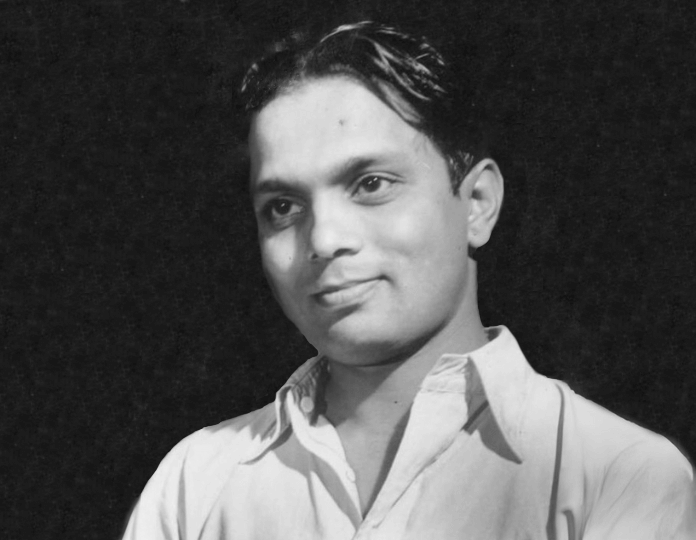
In 1946, he joined the Prabhat Film Company as a music director, a move that would see him compose music for numerous Marathi and Hindi films. His first film as an independent music director was Vasant Painter’s “Gokul (1946).” He followed by Yeshwant Pethkar’s “Aage Badho (1947),” starring Dev Anand and Khursheed. Phadke used brilliant interludes of sitar and violin in the duet “Sawan Ki Ghata Dheere Dheere Ana,” sung by Khursheed and Manna Dey, which was specially notable for its use of sitar and violin.
He then gave music to films like Seeta Swayamber (1948), Apradhi (1949), Jai Bhim (1949), Maya Bazar (1949), Sant Janabai (1949), Shrikrishna Darshan (1950), Malti Madhav (1951), Murliwala (1951), Pehali Tarikh (1954), Ratna Ghar (1955), Sajni (1956), Gokul Ka Chor (1959), Bhabhi Ki Chudiyan (1961), Pyar Ki Jeet (1972), Darar (1972), and Sher Shivaji (1987).
Sudhir Phadke Babuji
Phadke came up with one of his best compositions in B. Govind Ghanekar’s film “Sant Janabai (1949).” The film starring Hansa Wadkar, Shakuntala, and Ganesh Abhyankar, tells the story of Janabai’s devotion to Lord Vitthal. He composed 22 songs in the film. The film had soulful bhajans like “Bhaj man kamal nayan kamlesh,” “Bhakti Ki Gagari Sar Dhar Nagri,” and “Bitthal Rakh Meri Laaj” by Mohammed Rafi, and “Prabhat Vandana Kare Jaago Hey Hare” by Manna De. Phadke sang the famous bhajan “Sapne Mein Sampada Jo Paai,” himself.
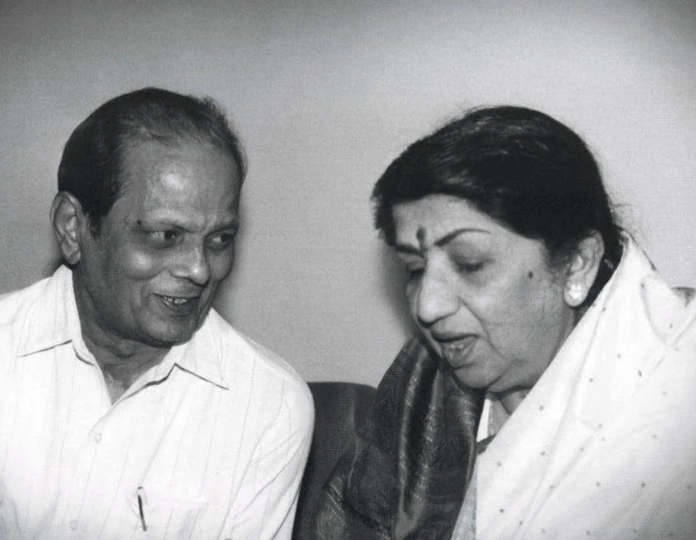
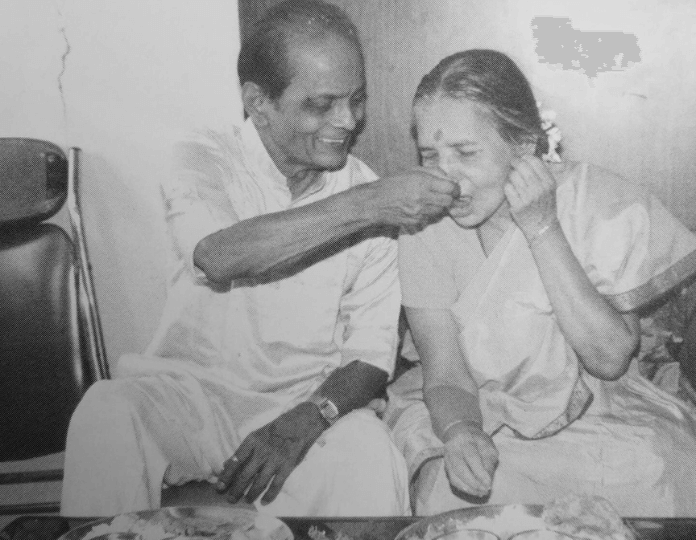
Some of his notable songs are “Chal Gori Chal Us Paar,” and “Hisaab Zara Sunte Jaana J,” in Pehali Tarikh (1954), “Ja Re Chandra Aur Kahin Ja Re,” in Sajni (1956), “Mukti Ka Mantra Do Aatma Swatantra Do,” “Hey badh bhagan sone chirayya,” and “Lal jasoda ke tum pyare” in “Gaja Gauri (1958),” “Maiya Mori Main Nahin Maakhan Khayo,” and “Yeh Mujhko Kaun Bulaye Re,” in Gokul Ka Chor (1959), “Chand Tu Yahan Hai Aur Chand Tu Wahan.” “Dar Bhi Tha Thin Deewaren Bhi,” “Jyoti Kalash Chhalke,” “Kahan Ud Chale Hain Man Pran Mere,” and “Meri Laaj Raakho Giridhari,” in Bhabhi Ki Chudiyan (1961), “Bedard Anadi Saanwariya,” “Is Jag Mein Kahin Bhi Rahiyo,” and “Jaane Meri Ankhiyon Ne Dekha Hai Kya,” in Pyar ki Jeet (1962),” “Chal Gori Chal Us Paar,” in Darar (1972).
Other Work
Along with hindi films Padke also gave music to many iconic Marathi films like Jivacha sakha (1948), Johar Maibap (1950), Pudhacha Paul (1950), Jashas Tase (1951), Lakhaci Goshta (1952), Narveer Tanaji (1952), Bolvita dhani (1953), Kuberacha Dhan (1953), Postatil mulgi(1954), Rashmachya Gathi (1954), Shevagyachya Shenga (1955), Maza ghar mazi manasa(1956), Utavala narad(1957), Gaj Gauri (1958), Jagachya pathiwar(1960), Lagnala jato mi(1960), Mazi Aai (1961), Nirupama ani parirani(1961), Bhintila kaan astat(1962), Soniyachi paule(1962), Bayko maheri jate(1963), Te maze ghar(1963), Devacha khel (1964), Ekati (1968), Aadhar (1969), Dev manus (1970), Mumbaicha jawai (1970), Lakhat ashi dekhani (1971), Mi hi manus ahe(1971), Anolkhi(1973), Aram haram ahe (1976), and many more.
Some of his famous Marathi songs include “Dehachi Tijori,” “Dev Devharyat Nahi,” “Dhundi Kalyana,” “Dam Kari Kam,” “Manavteche Mandir Maze,” “Vithu Mauli Tu Mauli Jagachi,” “Phite Andharache Jaale,” “Kanada Raja Pandharicha,” “Sakhi Mand Jhalya Taarka,” “Dis Jatil Dis Yetil,” “Jivlaga Kadhi Re,” “Vithala Tu Veda Kumbhar,” “Dis Jatil Dis Yetil,” and many more.
Perhaps Phadke’s most celebrated work is the ‘Geet Ramayana‘, based on poet G.D. Madgulkar’s verses. This collection of 56 songs, set to music by Phadke, was broadcast on All India Radio from 1955 to 1956. The programme’s popularity was such that stage performances continue to draw large audiences to this day. Phadke’s own recordings of these songs are cherished by many. These compositions serve as a testament to his versatility and depth as a musician.
Personal Life
Sudhir Phadke’s influence extended beyond the realm of music. He was actively involved in the Goa Freedom Movement and the post-independence socio-cultural landscape of India. He was also instrumental in founding the India Heritage Foundation in the United States.
Phadke married renowned singer Lalita Deulkar in 1949. Together they have a son, Shridhar Phadke. Shridhar also followed in his parent’s footsteps as a composer and singer, further cemented the Phadke family’s musical legacy.
Sudhir Phadke’s contributions were recognised with numerous awards and accolades throuout his career. He got the National Film Award for Best Feature Film in Marathi (1963) for “Ha Majha Marg Ekla.” He also got the Sangeet Natak Akademi Award (1991), and the Sahyadri Swara Ratna Puraskar (2002).
Sudhir Phadke passed away on July 29, 2002, but his music continues to resonate with generations of listeners. His work remains a cornerstone of Marathi cinema and Sugam Sangeet, and his life’s story is a source of inspiration for aspiring artists across India and beyond.
Sudhir Phadke on IMDB







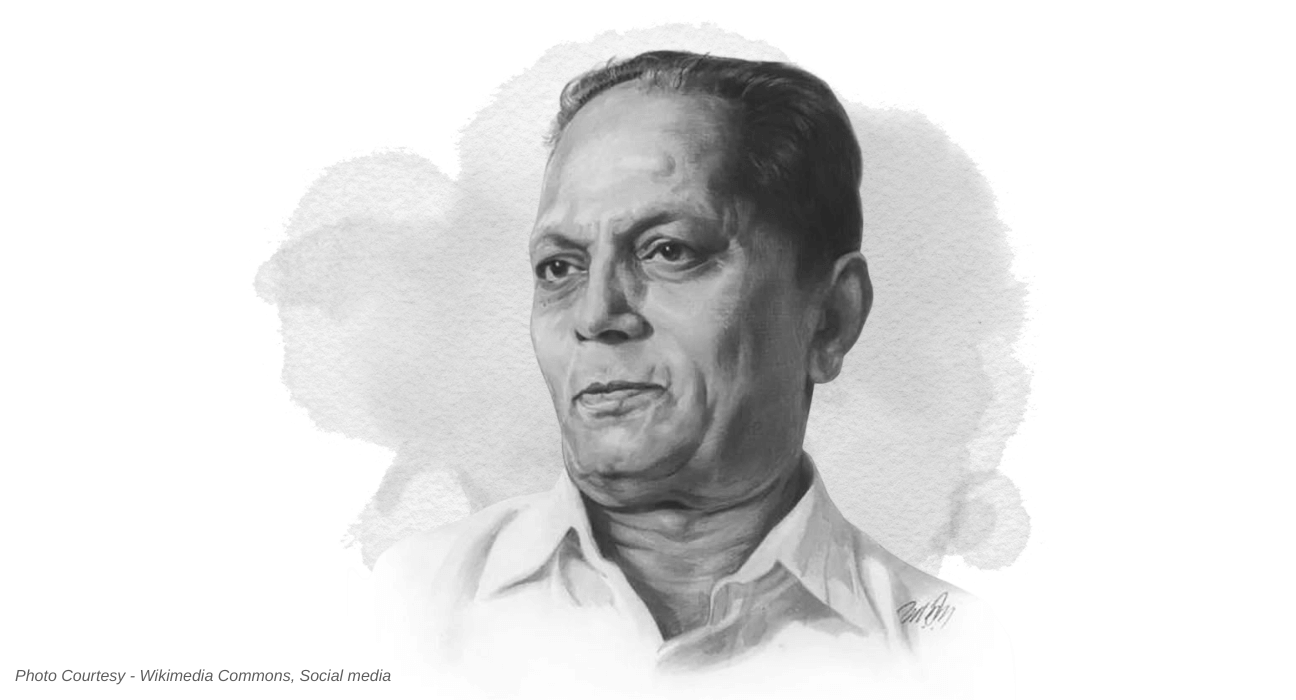





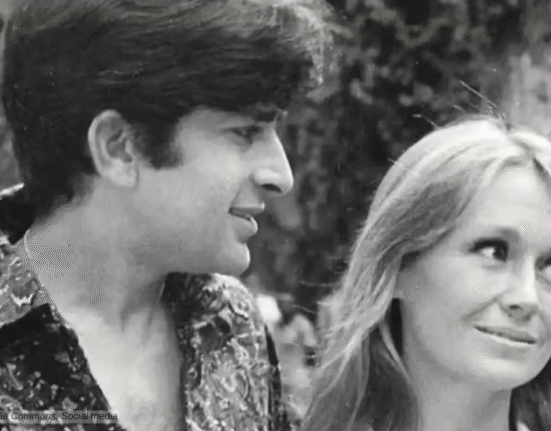
Leave feedback about this